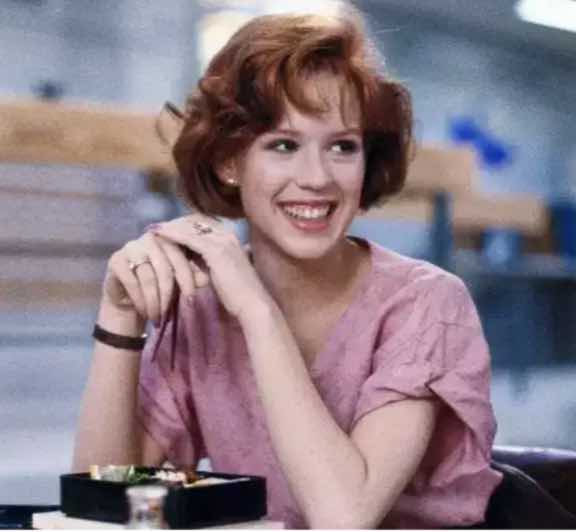Molly Ringwald was born the same year I was, and her movies were part of the teen culture in which I came of age.
I don’t think I would have ever described myself as a Molly Ringwald “fan”, exactly, but nor was I a detractor. Like most Gen Xers, I saw her movies, in the same spirit that I watched MTV and listened to bands like Journey and Bon Jovi. Pop culture was more monolithic in those pre-Internet times, and you kind of took what they gave you.
I enjoyed Ringwald’s performance in The Breakfast Club (1985), a movie that almost all people my age have seen at least once.
Ringwald was a gifted teen actress. She was also a gifted twentysomething adult actress in the 1994 television miniseries, The Stand. She starred as Frannie Goldsmith, the heroine of Stephen King’s beloved apocalyptic horror novel.
So I have no qualms with Molly Ringwald the thespian. I have been far less impressed with Molly Ringwald the public person. In recent years, she’s become a fashionably left-leaning celebrity gadfly, mouthing all the familiar slogans when goaded by journalists and interviewers.
Most particularly, Ringwald seems to feel a compulsive need to apologize for the John Hughes teen movies that made her famous. Bashing the creations of the late Hughes (1950 – 2009) has become a peculiar obsession of hers.
Case-in-point: during a recent interview, Ringwald declared:
“Those [John Hughes] movies are very white and they don’t really represent what it is to be a teenager in a school in America today.”
“Very white”? Did she really just say that?
I’ll overlook the obvious non sequitur here: John Hughes was a Baby Boomer who made movies about teenage life in the mid-1980s. Although he technically wrote about Gen Xers, he was probably thinking about Baby Boomers most of the time. At any rate, Hughes never aspired to depict teen life in the mid-2020s. The mid-2020s were still forty years in the future, and many of those yet unborn teens’ parents hadn’t even met yet.
But that isn’t what Ringwald is really getting at. She is implying that because Hughes’s movies did not feature racially diverse casts, there was somehow something retrograde, or even racist about them.
Pop culture in the 1980s actually was quite diverse. Yes, it was the decade of Molly Ringwald, Bruce Springsteen, and Madonna. But it was also the decade of Michael Jackson, Prince, Whitney Houston, and Billy Ocean. We all watched The Cosby Show on television. Eddie Murphy was on everyone’s list of favorite comedians, both in stand-up and in film.
(In many ways, the music scene was far more diverse in the 1980s than it is now. Black artists got proportionately more mainstream attention, whereas nowadays everything in the pop music space is maniacally focused on blonde, vapid Taylor Swift.)
But what about those movies of John Hughes? It isn’t technically inaccurate to say that they were “white”, if we must call them that. There is no evidence that John Hughes was specifically opposed to racial or cultural diversity, but racial and cultural diversity clearly weren’t his focus.
And…so what? Diversity, in the best sense of that word, doesn’t mean—or shouldn’t mean—that every film, TV series, novel, and toothpaste commercial is suspect if it doesn’t contain a box-checked, racially diverse cast of characters. If everything is box-checked to death, then that becomes the norm, and nothing is truly diverse. Diversity, when carried to ideological extremes, can become monochromatic, predictable, and boring.
I don’t remember ever watching The Cosby Show, and saying, “Where the heck are all the Asian Americans and Native American characters? Where are the Jewish and Muslim characters?”
Real life itself, moreover, is not always diverse. During the 1980s, I attended a suburban high school not unlike the one depicted in The Breakfast Club. There were a handful of Filipino students, and a few kids with partial Japanese heritage. Other than that, my high school was as white as Wonder Bread. I make no apology for this. The degree of racial and ethnic diversity in one’s environment has always depended on where one lives.
Molly Ringwald is old enough—and smart enough, I suspect—to realize her own folly. Her hand-wringing about her 40-year-old movies being “white” seems to be her way of keeping herself “relevant” in a chaotic twenty-first-century culture that is neurotically obsessed with identity politics.
I would have a lot more respect for Ringwald if she would simply own her past performances (which were quite good, on the whole) rather than pandering to the diverse but intolerant present. Not even Claire Standish was such an abject conformist.
-ET

